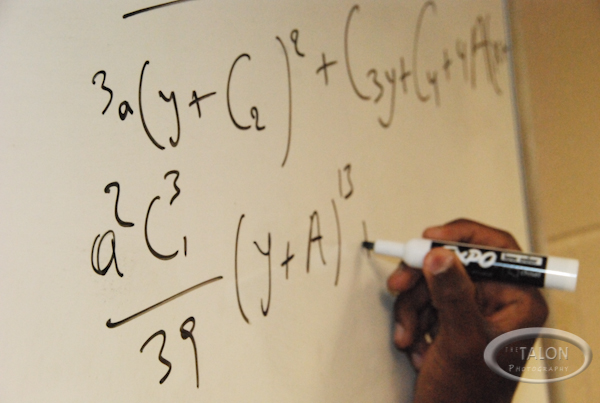Photo by: Henoc Kivuye
The state of Oklahoma is in a bind as teachers are in short supply. Last Tuesday, Oklahoma education leaders were pulled together by State Superintendent Janet Barresi to create the Oklahoma Education Workforce Shortage Task Force for the purpose of hiring and sustaining the best educators the current economy can afford.
“The most important factor in a child’s education is having a highly effective teacher in the classroom, and yet we are facing a critical shortage of classroom teachers in our state,” Barresi said in an article with the Edmond Sun. “I convened this task force to study the issues and to come up with solutions so that we can improve the outcomes of students.”
The task force tried to identify why Oklahoma teacher numbers are suffering, with low salaries and increased competition being focal points of the conversation.
“I think [teacher shortage] is a combination of factors,” senior education major Cody Summerville said. “When someone is researching career options and looking at teaching from all angles, it’s not a very pleasant field to go into. You don’t get paid very much and there is not much room for salary growth.”
Although Barresi called for a $2,000 pay raise for teachers, the funds would have to be found by changing district discretionary funds and school carryover accounts. Essentially, it is a pay raise that requires the districts to further stretch their budgets.
“I don’t really know that [a pay raise] is going to make that much of a difference,” Chair of the Department of Education Robyn Miller said. “Typically people who want to work with children in education are not doing it for money. It might be appealing, but it probably won’t be enough money because starting salary is around $31,000-32,000 and each district can actually increase that if they want to.”
Rather than simply increasing salaries for teachers, Miller suggests a second look might be needed at how different schools are budgeting their various incomes.
“I think what might be a little subliminal in the message here is that the state superintendent Barresi is not calling for the state to increase the state starting salary, she is suggesting that each district adjust their funding allocations to increase the salaries,” Miller said.
The state of Oklahoma ranks 41st in the nation with an average starting salary of $31,600 and 47th in the nation with an average teacher salary of $44,343.
Surrounding states such as Arkansas and Texas pay starting teachers thousands more than Oklahoma pays yearly.
“I think there are really two topics going on,” Miller said. “The first is the teacher salary increase; and that is coming from the state superintendent who is campaigning and that is a very positive thing to say to the state that you want to increase teacher salaries. The other topic is shortage areas; I can see why it ties together. If we add some more money, maybe we can attract people to science or math or special education or foreign language. I think in Oklahoma it is more of a general appreciation of teachers and valuing them. It is the 10, 15-year veteran who would like to see a little bit of an increase in the salary.”
Even with the possible wage increase, a new system of evaluation for the teachers in Oklahoma may come into effect soon.
“The new pressure is the teacher evaluation system, which is being moved toward merit pay,” Miller said. “Merit pay could encompass your student performance, so student test scores will still matter, but there will be other elements of teaching that will be evaluated. That is being piloted as we speak for this school year, but that is legislative. There will be a level of teacher evaluation that includes a quantitative and qualitative measure. Instead of teaching to the test, you will be worrying about this teacher evaluation situation and the possibility of actually losing your job.”
The teacher shortage is affecting certain areas of education and is noted even more as the Harvard Program on Education Policy and Governance Education Next released a report ranking the United States 25th in math, 17th in science, and 14th in reading as ranked against 34 other industrialized nations.
This presents the question, are teachers even in charge anymore?
“I believe part of the professionalism is that autonomy and we all want to be considered professionals and use that judgment that we learned in school about our field,” Summerville said. “The policy environment in the United States in education is one that takes that autonomy and gives you a tiny little slice of freedom, but for the most part they take it all away from you and they give you the state standard and the curriculum that the school district chose.”














Be First to Comment